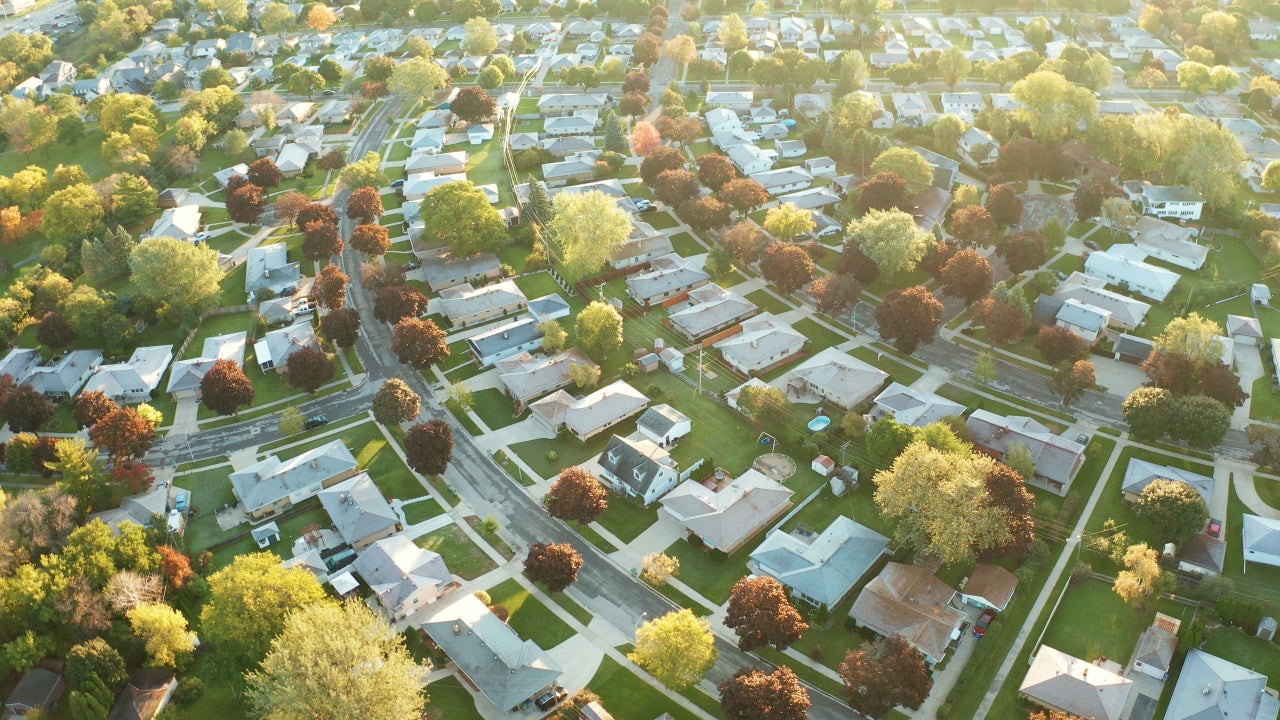Cost to sell a house in North Carolina

While the booming real estate markets that were common during the pandemic may be a thing of the past, home sellers in the Tar Heel State are still in a good position. In fact, North Carolina was one of the top five states that prospective homebuyers searched to move to between September and November 2023, according to data from Redfin.
Still, when you’re selling a home in North Carolina (or anywhere), it’s important to be aware of all the costs involved, including closing costs, Realtor fees and more. Here’s a breakdown of the costs to sell a house in North Carolina.
Sellers’ closing costs
For most people, their home is their most significant asset, and the goal when selling is to maximize their profit. But you also need to be prepared for the expenses that are part of the process. In North Carolina, the sellers’ closing costs will typically include:
- Title insurance: Depending on the deal you negotiate, sellers in North Carolina may need to pay the cost of title insurance, which protects in the case of any issues with the title. The cost of title insurance is based on the price of the home and is typically between $1.98 and $2.54 per every $1,000 of value.
- Transfer taxes: Transfer taxes are typically the responsibility of the seller in North Carolina. The state charges $1 for every $500 of value. That means the transfer tax on a $400,000 home would amount to $800.
- HOA fees: If the property is part of a homeowners association, you will need to ensure those fees are paid in full through the end of your occupancy of the home.
- Property taxes: Similarly, your property taxes will have to be paid up to closing day as well.
- Seller concessions: Many sellers choose to offer some concessions to entice buyers or seal the deal. For example, you may offer to cover the cost of a necessary repair.
- Legal fees: The state of North Carolina requires that you have a real estate attorney to facilitate any home sale. The cost for this expense will vary.
Real estate agent commissions
Unless you’ve opted for a “for sale by owner” transaction, one of the most significant expenses associated with the home-selling process is the fee or commission paid to real estate agents.
Commissions are typically somewhere between 5 and 6 percent of the home’s sale price, with the full amount getting split down the middle between your agent and the agent representing the buyer. The median price of a home in North Carolina in September 2023 was $310,073, according to data from NC Realtors. So 5.5 percent of that would amount to about $17,054 in agent commissions.
Median prices can vary widely depending on where in North Carolina you’re located, though. In Charlotte, where the median home price is $400,000 according to Redfin, a 5.5 percent commission translates to $22,000. In Greensboro, however, the median price is just $251,000, which translates to a much smaller commission tab of $13,805.
Preparing your home for sale and moving
Unless you plan to sell as-is, you may want to invest some money in preparing your home for sale, so it can look its best for potential buyers.
There are many options to consider when doing this. Things to consider include sprucing up the landscaping outside and hiring a home-staging service to spruce up the interior. Some home-improvement projects will get a solid return on investment, but most will not recoup their full cost when you sell, so be careful about how much you choose to take on here. Your agent can help direct you toward which changes are worth making, and which you shouldn’t bother with.
Moving costs are yet another expense to factor into your home-selling budget. The average cost of moving out of one home and into a new one, according to HomeAdvisor, is $1,704. But if you’re moving out of North Carolina, be aware that long-distance moves will cost much more.
How much do I get from selling my house?
Pinpointing the exact net proceeds from selling a home can be difficult. The final amount you walk away with depends on many different variables, including the sale price you negotiate, closing costs and commissions, and the payoff amount for your current mortgage (if you still owe money on the loan).
The good news is that home values in many parts of the North Carolina housing market are on the increase, so you may see a nice profit on your sale. In Charlotte, prices are up 2.6 percent since last year, per Redfin, while in Chapel Hill they have risen a whopping 17.3 percent year-over-year.
Reducing costs
There are a variety of ways to reduce your costs when selling a home. To begin with, you can negotiate with your real estate agent on their commission. Even a small discount can lead to big savings, especially on a higher-priced home.
Other areas where you might shave costs include repairs and upgrades. Rather than spending money on these types of expenses, you can opt to list your home “as-is” — meaning the buyer will need to accept the home in its current condition, with no changes. If you do choose to make repairs or upgrades, you can also reduce costs by spending time shopping around for service providers and finding the best value for your needs.
Alternatives
Selling your home the traditional way, with a real estate agent, isn’t your only option. There are other routes to consider including these:
- Cash homebuyers: Cash homebuying companies buy your home in an all-cash deal, often extremely quickly and in any condition, no matter how poor. In exchange for the speed and convenience, though, you’ll typically be offered less than full market value.
- iBuyers: iBuyers offer another variation on the cash homebuyer model, if you want to sell quickly and without hassle. They typically won’t buy homes in serious disrepair, though, and they may charge steep service fees.
- Owner sale: A “for sale by owner” or FSBO deal can also reduce your costs. But this can be a challenging approach: While you will eliminate a seller’s agent fee, you’ll have to do all the work yourself, including marketing your home, hosting showings and negotiating a deal.
- Home equity: If you don’t need a significant lump sum of cash quickly from a sale, a home equity loan or line of credit may be worth considering. The money from either can be used for various purposes, including consolidating debt, paying for a major expense or home upgrades.
- Renting: Another option if you don’t really need to sell right away is becoming a landlord. Provided you have somewhere else to live, renting out your home can generate an ongoing source of extra income.
Next steps
If you’re thinking of selling your home in North Carolina and plan to do so the traditional way, start by finding a local real estate agent who knows your area’s market inside and out. An agent can help you price your home appropriately and negotiate offers, giving you the best chance of getting the highest price possible.
If you’re pressed for time or need the money ASAP, explore homebuying companies that operate in North Carolina. They can get cash in your pocket quickly, but the downside is that you’ll typically pocket far less than you would with a traditional sale.
FAQs
-
North Carolina home sellers will have the usual range of closing costs to pay, including transfer taxes, title insurance and property taxes through closing day. The state requires a real estate attorney to oversee property sales, as well, so add legal fees to that tally. And finally, sellers are responsible for paying commissions to the real estate agents involved in the transaction. This will be 5 to 6 percent of the home’s sale price — on a median-priced $310,073 North Carolina home, 5.5 percent comes to just over $17,000.
-
No. You are not required to hire a Realtor to sell your house in North Carolina, or in any state, though doing so will save you plenty of work. Keep in mind, though, that the state of North Carolina does require you to hire a real estate attorney to oversee the home closing.
Why we ask for feedback Your feedback helps us improve our content and services. It takes less than a minute to complete.
Your responses are anonymous and will only be used for improving our website.
You may also like


How much does a boat cost to purchase and own?

‘We buy houses’ companies in Illinois



